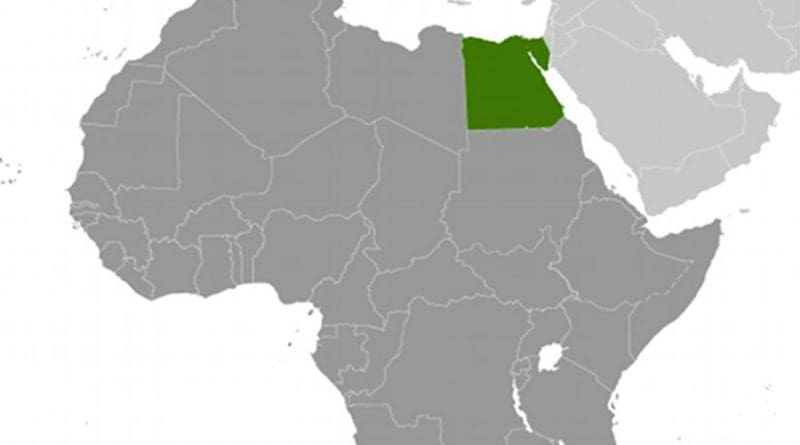Lawyers Appeal For Amnesty For Former Guantánamo Prisoner Held In Egypt – OpEd
Back in June, I reported the story of Adel Al-Gazzar (aka Adel El-Gazzar), an Egyptian and a former Guantánamo prisoner, who had been imprisoned on his return to Egyptafter a decade away from home.
Al-Gazzar had been seized in late 2001 in Pakistan, where he had been working as a volunteer with the Saudi Red Crescent, and had been living in Slovakia since being freed from Guantánamo in January 2010, on the basis that it was unsafe for him to be returned to his home country while it was still under the control of Hosni Mubarak. As I explained back in June:
This was not because of anything he had done, but because, as a critic of the regime, he had left the country in 2001, and had been in Pakistan, undertaking humanitarian work in a refugee camp when he was caught in a US bombing raid (which, with subsequent medical neglect on the part of the US authorities, led to him losing a leg). As a result, following his departure from Egypt, he had been given a three-year sentence in absentia by the Egyptian State Security Court for his alleged part in a supposed plot that was known as al-Wa’ad.
This, as the Egyptian newspaper Al-Masry Al-Youm explained, was “the first major terrorism case in Egypt” after the 9/11 attacks, in which the defendants — 94 in total — were charged with “attempting to overthrow former President Hosni Mubarak’s regime and infiltrate Palestinian territory.” However, the case “was widely condemned as an attempt by Mubarak to suppress his Islamist opponents,” and this was an interpretation that carried considerable weight, as “[m]ore than half of the suspects were subsequently released.”
Al-Gazzar was unhappy in Slovakia, in part because he was separated from his family, and in part because the Slovakian authorities had no idea how to treat him and two other men freed in Slovakia (a Tunisian and an Azerbaijani), and had been humiliated internationally when Al-Gazzar embarked on a hunger strike in June 2010 to protest about being held in a detention centre as though he was a criminal (which I reported here, here and here). The authorities subsequently sorted out his papers, but when Mubarak fell from power in February this year it was obvious that he would try to return home.

Sadly, when he did return, he was promptly arrested and imprisoned in the notorious Tora prison (after only the most fleeting reunion with his wife and children), prompting his US lawyer, Ahmed Ghappour, to tell Al-Masry Al-Youm of his concerns that he would be convicted and imprisoned after another sham trial, even after the fall of Hosni Mubarak’s hated regime. “The Egyptians have a track record of abuse and one that we’ve seen continued in the post-Mubarak era,” Ghappour said, reflecting on the mixed record of the Supreme Council of the Armed Forces, which took over the government after Mubarak’s resignation in February — on the one hand, the trial of former President Mubarak, which began today, but, on the other, the sentencing of at least 10,000 civilians in military courts since Hosni Mubarak was ousted, a much higher number than before the dictator’s fall.
This week, Reprieve has called on Egypt’s Military Prosecutor to free Adel Al-Gazzar from prison, where he has been held since his initial arrest on June 13, and to grant him an immediate amnesty. As Reprieve explained:
Due to the flimsiness of the Mubarak-era charges, Adel’s lawyers are confident that his sentence would be overturned on appeal. However, 50 days of the 60-day window during which Adel has a legal right to appeal have now passed and the Military Prosecutor continues to create arbitrary obstacles, effectively preventing him from challenging his imprisonment.
Reprieve is alarmed by the Egyptian military’s apparent attempt to strip Adel once more of his legal rights, and is now calling on the Military Prosecutor to grant compassionate release on the basis that he has already endured nearly a decade of unlawful imprisonment without charge or trial.
As Reprieve also explained, it was, specifically, “urgent concerns about his family” that drove al-Gazzar to return to Egypt in June, “despite the risk of re-arrest and imprisonment.” As Reprieve noted, his family had been “left extremely vulnerable by his decade-long absence. His four children whom he had last seen as babies are now teenagers and his elderly mother recently suffered a cerebral hemorrhage which has left her paralyzed and requiring full-time care.”
Calling for the amnesty, Katie Taylor, a project officer with Reprieve’s Life After Guantanamo Project, said, “Adel has already suffered far too much in one lifetime. He has been unjustly detained for nearly a decade, and as a result, has suffered permanent injury and chronic health problems and his family now stands on the edge of poverty. The Military Prosecutor has the ability to finally give Adel and his family the justice that is long overdue by granting him amnesty and releasing him.”
While all eyes are on Hosni Mubarak, and questions are being raised as to whether the Supreme Council of the Armed Forces can demonstrate a genuine commitment to democratic change, or whether Mubarak’s trial is essentially a sacrifice designed to deflect attention from their own activities, the freeing of Adel Al-Gazzar would send out a positive message that genuine change has taken place since Mubarak’s fall from power.
For further information please contact Donald Campbell in Reprieve’s press office on +44 (0)20 7427 1082 or +44 (0)7791 755415, and also see Reprieve’s page on Adel Al-Gazzar and his case.

